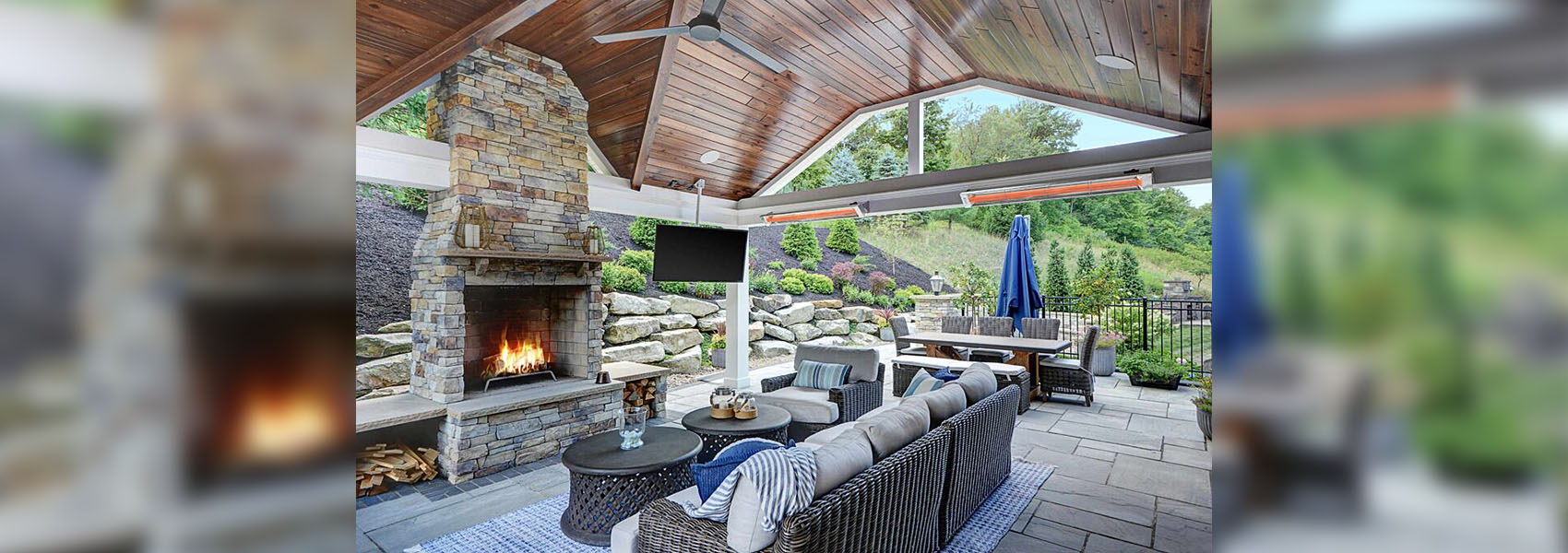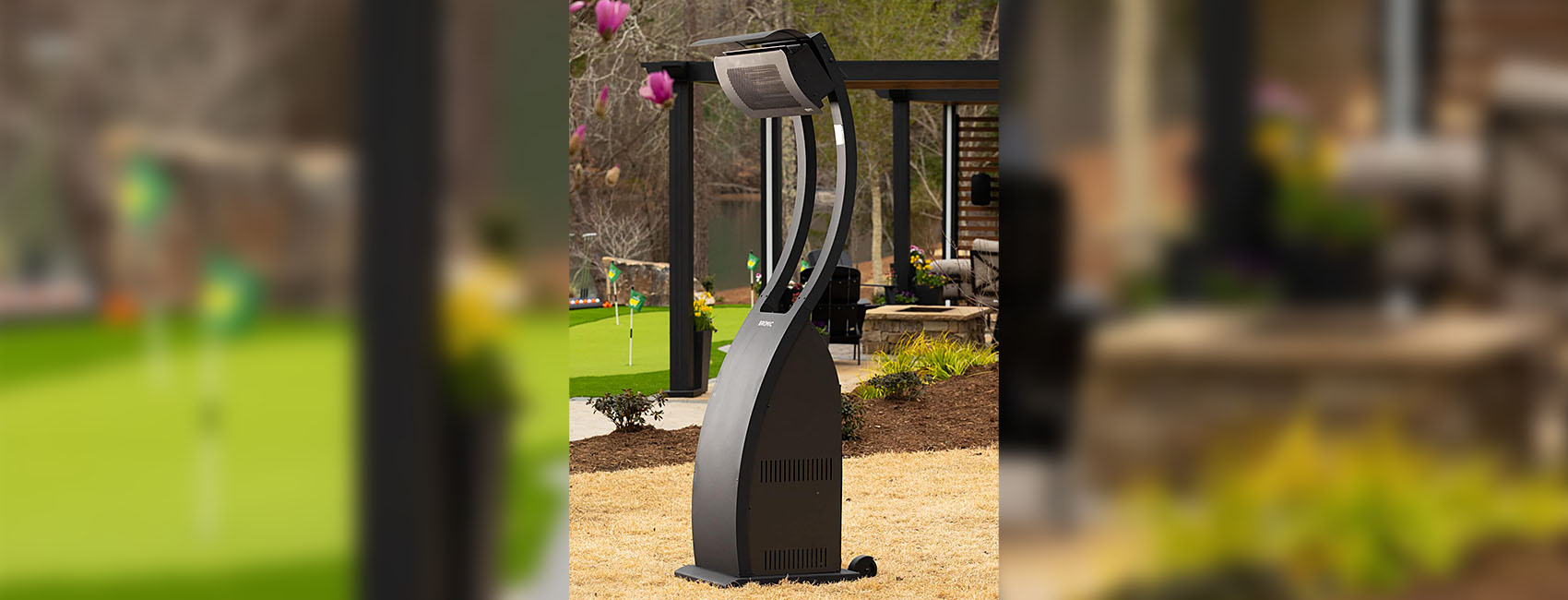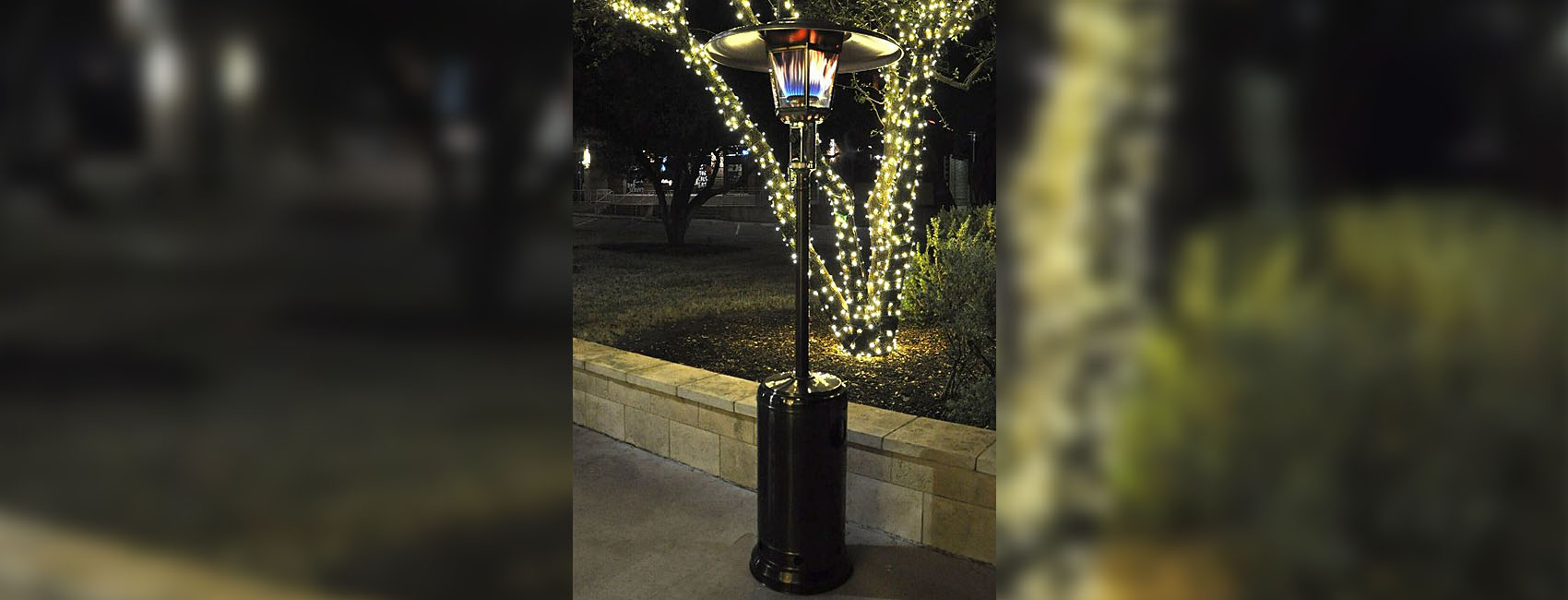Can I Leave My Patio Heater Outside All Year?

Well, you’ve finally purchased your patio heater you’ve found out that all the rumors were true – that turning your heater on during early morning coffee takes the chill off the day, allowing for a slow and languorous cup of coffee as you create the day’s plan of attack. In the evening the sun takes the warmth with it over the horizon, but a simple flick of a switch brings all that heavenly warmth to your family and friends, allowing the good times to go on all through the night.
You don’t have to tell us how important having the right patio heater(s) is to patio comfort, we know just about everything there is to know about it. Luckily, we love to share. One of the things our patio brainiacs are frequently asked is whether patio heaters can stay outdoors year-round. Let’s take a few minutes to mull this over and answer this burning question once and for all.
Patio heaters can handle being kept outdoors for long periods of time

Generally, patio heaters don’t like moisture. Depending on the type of patio heater you’ve got, there are different levels of protection we would suggest:
- Mounted Gas Heaters – Doesn’t matter if they’re LP or natural gas, they’re wired and plumbed in to stay so moving them isn’t a possibility. Manufacturers understand that they are a “forever” device, and build-in a level of protection… but we recommend a patio heater cover whenever your heater is not in use.
- Portable Gas Heaters – Most portable LP gas heaters are designed to withstand some rain or some snow, but since they’re portable we recommend putting them in a garage or shed during periods of non-use (middle of summer). Although technically portable, some gas heaters (like the pyramid-style ones) are really heavy and cumbersome, for those we recommend a patio heater cover.
- Electric Infrared Heaters – As with just about anything that runs on electricity, it should stay out of the rain and snow. If yours is portable, put it away to keep rain and snow off it… and if it’s mounted, during periods of non-use we highly recommend a waterproof patio heater cover.
A couple of reminders… Never store propane tanks in an attached garage or in your house, they’re unsafe. Put your heater away if you can during periods of unuse. And did we mention get a patio heater cover?
Do patio heaters need to be covered?
Not only are rain and snow damaging to your patio heaters, but dirt and debris need to be kept out of them as well. Cover your patio heater when not in use to protect against all manner of things determined to decrease the efficiency, or even to disable your patio heater.
Are patio heaters weatherproof? Can I leave my patio heater out in the rain?

Generally, patio heaters aren’t built for rain or snow. Avoid keeping your heater exposed to the elements as much as possible… cover your heater or keep it in a covered area to protect it. Although some heaters are built to withstand some moisture, it’s always best to keep it dry to prolong its lifespan.
What happens if a patio heater gets wet?
Nothing good. Electric heaters are especially susceptible to corrosion, short circuiting and other serious permanent damage if exposed to too much water. Even propane heaters (typically built the strongest for protection from water damage) will suffer corrosion and damage with prolonged exposure. It’s always best to put your heater away or cover it up.
Are patio heaters safe on a covered porch?
Bringing your patio heater under cover (whether it’s a covered portion of your patio or a separate covered porch) will help protect your system from wind, rain and just about anything else that Mother Nature throws at them. In fact, most heaters are perfectly safe to use in these areas (assuming that there is adequate airflow, and the space is not fully or mostly enclosed). Remember to follow the manufacturer’s recommendations on clearance and ventilation requirements to make sure you’re good-to-go.
Wrap-up
Patio heaters are meant to be used in good weather (light wind, no precipitation) and will serve your family well for years if you do your best to take care of them. Electric heaters need to be put away or covered when not in use, gas heaters should be put away or covered but can take a little bit of moisture if you forget. During extended periods of inactivity, your heater should be stored, if at all possible, to help prevent damage and corrosion.
As the patio comfort experts, we here at Patio Heat and Shade can’t stress enough how much longer life you’ll get from your patio heaters by just taking a few minutes to stow them away when not in use. Put it away or cover it up and you’ll be basking in the warmth of your patio heater for years to come.